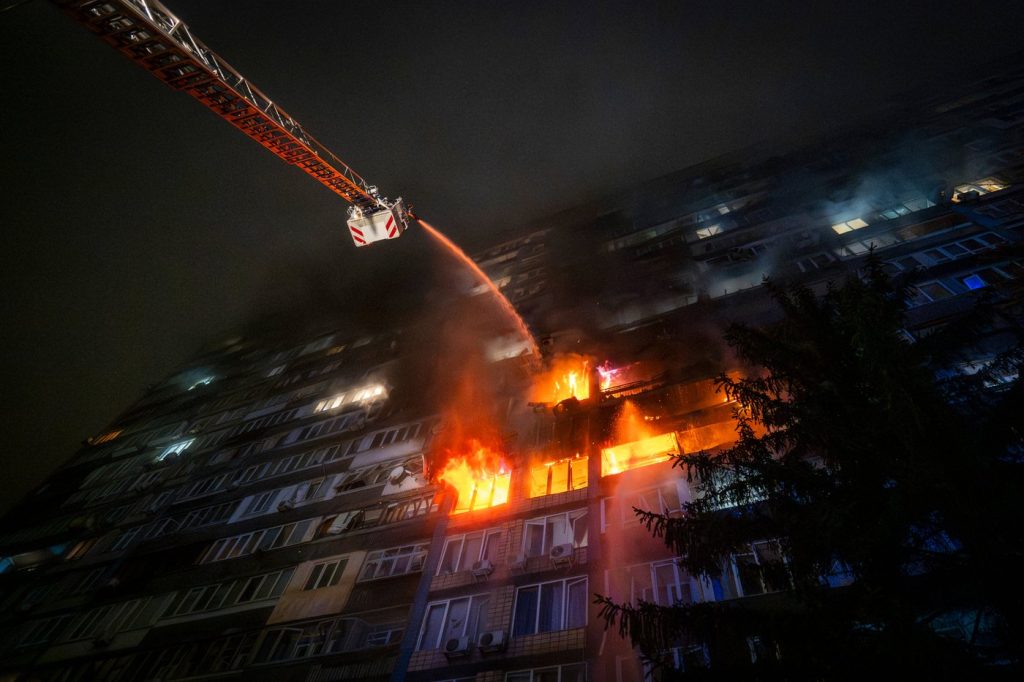Power was restored to over 800,000 residents in Kyiv on Saturday, just one day after Russia launched significant attacks targeting the Ukrainian power grid, which resulted in widespread blackouts throughout the country. In response, European leaders have agreed to move forward with plans to utilize hundreds of billions in frozen Russian assets to support Ukraine’s war efforts.
DTEK, Ukraine's largest private energy company, stated that the main work to restore the power supply had been accomplished by Saturday; however, some localized outages continued to affect Kyiv due to the "massive" Russian attacks on Friday. These assaults included drone and missile strikes that injured at least 20 people, damaged residential buildings, and caused extensive blackouts across several regions of Ukraine.
Ukrainian Prime Minister Yulia Svyrydenko described the assault as one of the largest concentrated strikes on the country's energy infrastructure. The Russian Defense Ministry claimed that the strikes targeted energy facilities connected to Ukraine's military, although no specific details of these facilities were provided. They stated that Russian forces employed Kinzhal hypersonic missiles and strike drones in these operations.
The energy sector has been a focal point of conflict since Russia commenced its all-out invasion of Ukraine over three years ago. Historically, Russia has attempted to incapacitate the Ukrainian power grid annually before the harsh winter months, with the objective of eroding public morale during this challenging season, which typically spans from late October to March, with January and February being the most frigid months.
In a nightly address on Friday, Ukrainian President Volodymyr Zelenskyy remarked that Russia is manipulating the global spotlight, which is "almost entirely focused on the prospect of establishing peace in the Middle East." He emphasized the necessity of enhancing Ukraine’s air defense systems and implementing stricter sanctions on Russia. Zelenskyy asserted, "Russian assets must be fully used to strengthen our defense and ensure recovery," in a video shared on the platform X.
Meanwhile, leaders including British Prime Minister Keir Starmer, French President Emmanuel Macron, and German Chancellor Friedrich Merz issued a joint statement on Friday indicating their readiness to coordinate the use of immobilized Russian sovereign assets to bolster Ukraine's armed forces. They collectively expressed the intention to act "in close cooperation with the United States."
Forecasts for Ukraine’s budget and military requirements for 2026 and 2027 suggest a total of around 130 billion euros ($153 billion) will be necessary. Since the war's escalation in February 2022, the European Union has already contributed 174 billion euros (approximately $202 billion) to Ukraine.
The most substantial reservoir of immediate funds exists in the form of frozen Russian assets, primarily stored in Belgium, which amounts to around 194 billion euros ($225 billion) as of June. Additional significant sums are held outside the EU, including approximately $50 billion in Japan, alongside lesser sums in the U.S., U.K., and Canada.
On Saturday, Ukraine's air force reported that its defenses successfully intercepted or jammed 54 of 78 Russian drones launched against the country overnight. In contrast, Russia’s defense ministry asserted that it had downed 42 Ukrainian drones over its territory.











